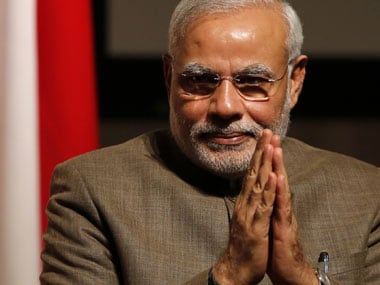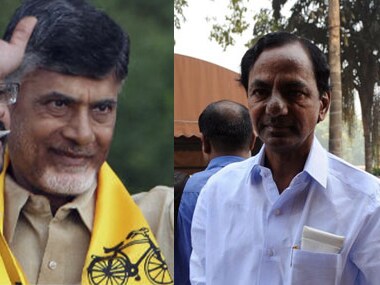It appears that a new phase in the BJP’s growth trajectory is beginning. This can be seen from the TDP’s imminent exit from the NDA, discontent among allies like the Shiv Sena and Akali Dal, the distancing of possible allies like the TRS, and the BSP’s decision to support SP candidates in the upcoming Uttar Pradesh bypolls.
Notwithstanding the concerns of its allies, the BJP is aggressively pursuing its objective of coming to power in states where it is not in the government. Thus, the NDA is bound to witness more problems. If the BJP demonstrates political arrogance, it can prove to be costly for the party, as the coalition phase in Indian politics has not yet come to an end.
The party, in its earlier incarnation as the Jan Sangh, tried to mainstream itself through experiments like the Janata conglomerate and extending support to the VP Singh government. The Jan Sangh's role in the anti-Emergency struggle led by Jayprakash Narayan gave it a sort of political legitimacy beyond the frontiers of its conservative political ideology. However, the core ideology of the BJP, represented through the RSS, became a bone of contention in the Janata Parivar leading to its break up, much to the advantage of the Jan Sangh. Even as the other constituents of the Janata Parivar, especially socialists, got splintered away into myriad political formations, the BJP could consolidate itself and emerged as a stronger political force than its earlier avatar.
Its brief support to the VP Singh government was a tactical move and it ditched the dispensation at a politically appropriate time. Mandir politics came to the fore as the mandalisation of the Indian polity under the VP Singh dispensation proved to be an ideological challenge to Hindu monolithic religious politics.
However, the aggressive politico-religious mobilisation pursued by the BJP made it rather a political untouchable for most political parties in India which swear by secularism either due to ideological commitment or out of electoral compulsions.
In the second phase, under the Vajpayee rule, the BJP remained a political untouchable. However, the BJP only became stronger even as the secular parties tried to isolate it, thanks to its politics of majoritarianism fuelled by the policies of minority appeasement of the so-called secular parties.
In the third phase, the post-Kargil politics provided an opportunity for the BJP to garner greater acceptance for its aggressive brand of nationalism coupled with religious appeal. The party moved from its professed ideology of Gandhian socialism at the time of inception to aggressive Hindu nationalism. It emerged stronger in Indian politics as non-Congress political formations got fragmented. The Congress no longer enjoyed the popularity it once had. The anti-Congress political mood, in the absence of any other serious challenger, made the BJP the principal political player and an obvious choice for those disenchanted with the Congress' misrule. Several regional forces emerged due to the Congress’ centralised authoritarian rule. These regional parties thus moved closer to the BJP as the Congress is their principal political adversary at the state level. This was also the context in which the TDP, Akali Dal, Shiv Sena etc, became BJP allies.
Thus, during the NDA-1 government led by Vajpayee, the BJP could muster the support of many regional parties.
However, several small and regional parties went into the fold of the Congress-led UPA. This was either because the BJP’s politics was unpalatable to them, or because the anti-incumbency faced by the first NDA regime made them wary of any alliance with the saffron party. Thus, the Congress led national coalition could rule the nation for a decade. However, a series of corruption scandals which plagued the UPA-2 regime gave a golden opportunity for the BJP to expand its frontiers of influence across the nation, along with an unprecedented consolidation in its strongholds.
The fourth phase saw the BJP consolidating itself by attaining a majority in Parliament on its own. The Modi-led NDA-2 government kept allies in its fold, but on its terms only. The BJP is no longer magnanimous to its allies.
The next phase marks the BJP's expansionist agenda, making allies restless and possible allies suspicious of the intentions of the big brother.
The BJP president Amit Shah, speaking after the historic victory in Tripura, said that the golden era in the BJP’s history will come only when it wins West Bengal, Odisha and Kerala. As the BJP readies itself for battle in these states, the TMC and the BJD, which are incumbent ruling parties, cannot be the allies of the saffron brigade.
Similarly, the BJP's quest for power on its own has certainly made the TDP and TRS quite skeptical of its relations with the NDA. The TDP is thus moving out of the NDA, while the TRS, which was till now sympathetic to the Modi government, called for a third front comprising of non-Congress and non-BJP parties. Even the Shiv Sena picked up a quarrel with the BJP only when the latter claimed to the senior partner in the alliance. The Akali Dal also fears such claims by the BJP.
The BJP assuming office in Uttar Pradesh made the SP and the BSP its natural foes. The surge of the BJP made these two arch rivals unite to face the Modi juggernaut.
Even Nitish Kumar is not sure of the BJP's support, and the saffron party is also unsure of Nitish’s commitment to the alliance, given past experience. The Janata Dal (United) has also started complaining of non-implementation of the promise of a special package for Bihar.
Meanwhile, the aggressive ideological posturing by BJP will estrange some of its allies. The PDP in Jammu and Kashmir is uncomfortable with the BJP's stand on Article 370 of the Constitution. The BJP's repudiation of Periyar makes it difficult for any Dravidian party to sail with it.
However, the BJP hopes that many of these smaller parties and regional forces can be co-opted into the NDA in the pre-poll or post-poll scenario, as they are often opportunistic when it comes to national alliances. Their hostility towards the Congress due to state-specific reasons is also something the BJP will pin hopes on.
The BJP's calculations are certainly not unfounded. However, there exists a natural contradiction between the BJP's expansionist ambitions and the imperative to depend on allies to form national coalitions. It is a tightrope walk for the BJP leadership.
The writer is a former MLC in Telangana, former editor, The Hans India and Professor, Journalism, Osmania University.
Published Date: Mar 09, 2018 19:59 PM | Updated Date: Mar 09, 2018 19:59 PM














